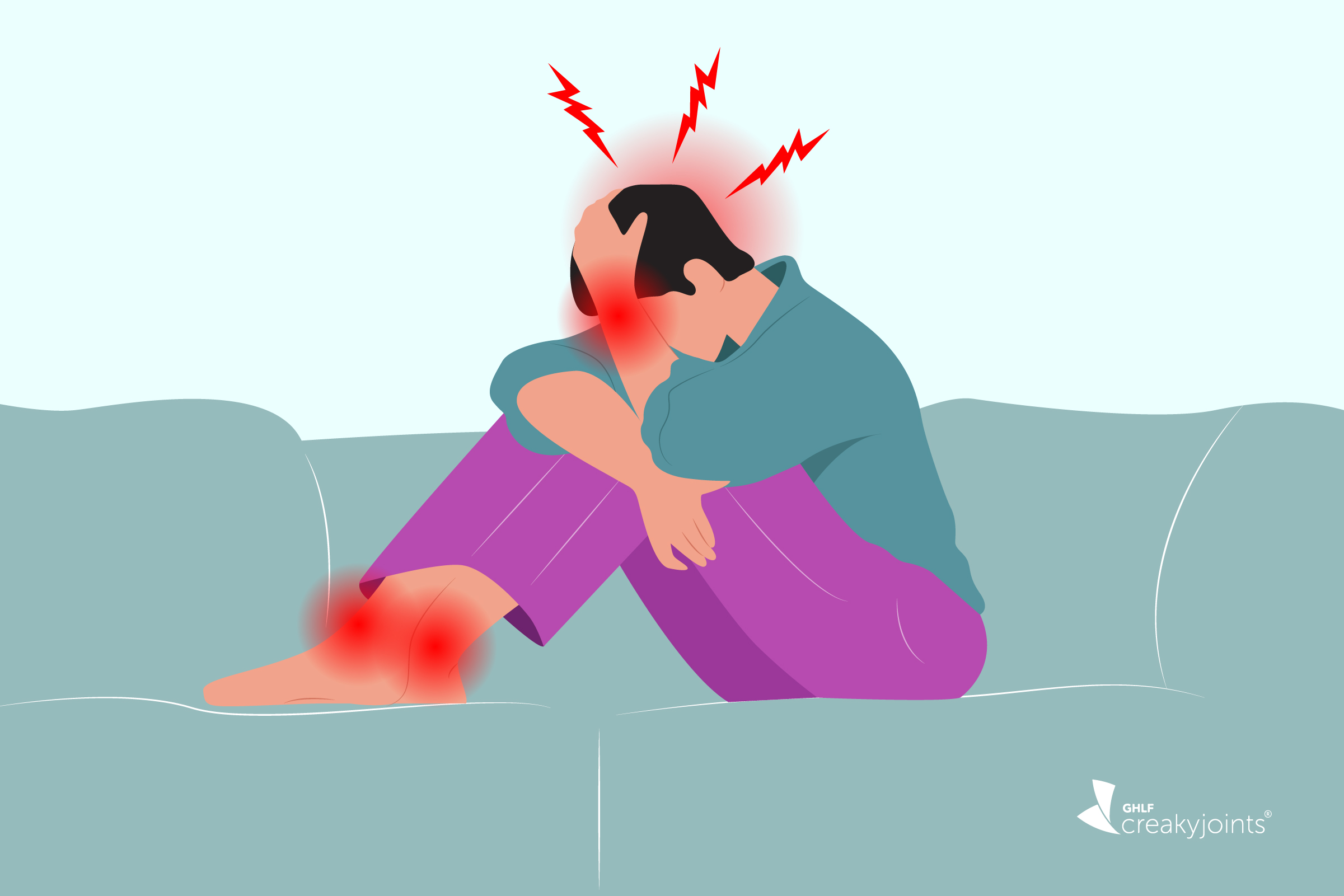Finding a doctor who makes you feel safe to share your identity is key to getting the best care. Here are some patient and provider tips to help you get started.
Navigating University Life with a Chronic Illness
Navigating University Life with a Chronic Illness
We asked students with chronic illness what helped them in their journey.
August 30, 2024
Kelsey Feng

Preparing for university can be hard for students worldwide. Between adapting to a new environment, selecting courses, finding housing, and choosing a major, there’s a lot to adjust to.
Students with chronic illness have the added challenge of managing a condition that can be unpredictable. There are so many factors that can affect your health, but we asked students with chronic illness what helped them in their journey.
Prioritize Rest and Pace Yourself
Never underestimate the power of rest, especially when balancing demanding activities like studying and socializing. Even a slight reduction in sleep can lead to significant health setbacks. Starting your day with 15 to 30 minutes of sunlight can also help with a good night’s rest — sunlight aids in regulating the circadian rhythm and stabilizing melatonin levels.
For Calleigh S., who lives with migraine, getting a good night’s sleep is crucial. “I know that for me if I get less than eight hours of sleep, I’m guaranteed a migraine [attack] the next day,” she says.
Overexertion can also lead to health flare-ups, emphasizing the need to pace oneself. If you find afternoons challenging, it might be wise to schedule morning classes. On days you feel well, it’s advisable to work ahead, so you aren’t left behind on more challenging days.
“Whenever possible, take a day off, says Emily M., who lives with chronic migraine, autism spectrum disorder, scoliosis, sciatica, and gastritis. “I acknowledge that this isn’t always doable during flares or because of lack of resources, but I’ve found that it really helped me to have a day to rest, do all my appointments and recover from a busy week.”
Taking breaks during studying is also helpful. “For my movement disorder, I ensure to stretch every time I’m at the computer to counteract the effects of bad posture,” says Jaclyn I., who lives with autism spectrum disorder, ADHD, cervical dystonia, migraine, and POTS.
Manage Stress
Managing stress is also key to managing chronic illness and university life. “Getting in 30 minutes of exercise or yoga has always been a good stress reliever for me, and is easy to fit into my day no matter how jam packed,” says Calleigh S.
Being prepared can also help ease stress. Sade F. who lives with migraine, suggests: “When classes begin, pack as lightly as possible, but be sure to bring anything you might need to make yourself comfortable. Give yourself extra time to get to classes.” Ela C., who lives with juvenile onset rheumatoid arthritis and mental health conditions, describes chronic illness as a full-time job — “school takes a back seat or vice versa and peers or professors do not understand that and that becomes taxing at times,” says Ela.
Accommodations
Speak with your provider to determine if they can complete accommodations paperwork and, if so, what accommodations would best suit you. Once you and your provider are on the same page, reach out to your university’s disability or accommodations office for their requirements. It’s recommended to do this as early as possible as you don’t know how long your provider will take to complete the paperwork and how fast your university may take to process it. All of the accommodations you request may not be approved, but it is important that you and your provider know what options might assist your success so the disabilities office can best accommodate your needs.
Accommodations you can request are:
- Priority registration: Early registration can help you take the classes you need at certain times.
- Note-taker: If your joints get stiff, you may want to request to have a note-taker for when you can’t take notes yourself.
- Food and hydration: Some professors can be strict about eating or drinking during classes. In those cases, be sure to include the ability to eat and drink during class. Staying hydrated is especially important.
- Recorded lectures: Recording lectures can be important if you need to leave early or overall don’t feel well.
- Extensions: Extensions can be provided for tests, exams, quizzes, and assignments.
- Breaks: Requesting breaks for stretching, overstimulation, or any other reason can help get you through the class.
- Seating preferences: If you have a vision impairment, you can request to be seated at the front of the class for visibility.
- Interpreter: If you’re deaf or hard of hearing, you can request an ASL interpreter for your lectures.
- Residential arrangements: If you’re planning to live in dorms, you can request a, “building with an elevator/first floor, building with AC, single room, building with laundry,and/or newer dorm,” says Ela C.
When you request accommodations, you will typically need to provide medical documentation of your diagnosis, how your disability limits a major life activity, how your disability can affect academic performance, and the accommodations requested. The student disabilities office is the only place you are required to disclose this information. The student disabilities office will then decide what they will provide and notify your instructors of approved accommodations.
It’s up to you if you would like to further discuss accommodations with your professor. “For me, honesty helps a lot with my professors,” says Jazmyne S. who lives with chronic migraine, cluster headaches with and without aura, and chronic neck pain.
Remember, once you are awarded your accommodations you are entitled to use them and you do not have to disclose any specifics about why you are receiving them. If you receive more diagnoses or need to change the accommodation, you can modify your accommodations request too. Without accommodations Sophia C., who lives with Crohn’s disease and dysautonomia (POTS), “would not have been able to live on campus, and living on campus has allowed me to meet new people, make connections, and be more involved in the community.”
Disability Aids
Whether you take classes in-person or remotely, you may need some disability aids to help you get by. Remember disability aids help you be at the same level as your able-body classmates. Sophia C., says, “one thing I struggle with is trying to remember not to compare myself and my abilities to my healthy peers. It can be hard to observe my peers going out and doing more than I can due to constant fatigue and pain.”
- Mobility aid: A mobility aid can increase your independence and reduce your pain levels. If you think you need a mobility aid, you probably need one. “If you can, dress in a way that makes you feel confident. People stare; give them something to stare at,” said Sade F..
- TENS unit, Neuromodulation devices, pain relief devices: Using a device to help relieve your pain levels can increase your productivity.
- Blue light screen protector: Blue light exposure has been proven to dysregulate circadian rhythm, try to limit light from devices 30-60 minutes from bed to sleep.
- Lidocaine patches: Lidocaine can decrease the amount of pain you’re experiencing to functioning levels.
Relationships and Social Life
The balance between chronic illness and a social life can truly be a struggle when you have to account being a student on top of it all. Ela C. describes feeling more mature than her peers, often finding it, “hard to advocate for myself in social situations or talk about my conditions and get friends to understand,” and it can be, “hard to balance health and social time to not feel overwhelmed.”
Interpersonal relationships can be impacted by it all. “I find it hard to become comfortable sharing my health struggles in relationships (this applies to both platonic and romantic). I often feel like I am hiding the realities of my illness. I find relationships hard sometimes because they take effort and energy that I sometimes don’t have, so I have to find people who understand that,” says Sophia C. Disclosing your chronic illness is a personal decision and should be thought through.
“I have found that at first it was hard for me to maintain and make relationships with people at first balancing a chronic illness. I’ve found over time that if someone doesn’t respect your feelings about your health issues or thinks they are a burden, then it’s their loss not yours. Being chronically ill has made me appreciate the relationships I have formed with people who love and accept me for who I am,” says Anna B. who lives with lupus, Sjogren’s disease (syndrome), OCD, and ADHD.
Hobbies
Student life with chronic illness is not always about the struggle. It’s important to spend the limited free time you have doing things you enjoy. This can vary depending on your spoon level. Sophia C. says she likes to do relaxing activities like embroidery, “I also love hanging out with friends and doing something easy, like watching TV. It doesn’t take energy, and I can stay in the spaces I am comfortable in!” In contrast, Ela C. dances, plays volleyball, or badminton and when she’s not able to she does medical research or advocacy.
Anna B. admits to being an active person and likes exercising, hiking, and adventuring in the woods or in the city. “I am a big fan of musicians like Taylor Swift, Olivia Rodrigo, and Beyoncé and attending concerts,” says Anna, who also enjoy anything related to arts, reading, cooking, and writing.
Finding Community
Having a chronic illness can be a lonely journey, which is why it’s important to find other people who can relate and understand what you’re going through. Anna B. has found community, “people who understand or relate to my struggles as a young adult patient are so vital to my mental and physical health especially towards recovery and having a safe space to be able share my thoughts and sometimes traumatic experiences that come with being chronically ill.”
Here are a few ways to start finding a community for you.
- Online support groups: Search for your condition on social media to find others out there like you (i.e., GHLF Patient Advocate Discord Server and ChronicHue).
- Local community support groups: Check the bulletin board of your local recreation centers, cafes, or community centers for meet-ups. Patient advocacy groups often offer support groups or the resources to locate one.
- Disability clubs: “I have found a community specific to my identity as a disabled/chronically ill person among my school’s disability club,” says Sophia C. “It has been a great place to meet other disabled and chronically ill people on campus. I always find it refreshing to hang out with other college students with disabilities because it makes me feel less alone, and I really value having people to relate to.”
- Classmates: It can be hard being in a new environment with new faces, “don’t be afraid to ask for informal help from those around you,” says Grace E., who lives with complex regional pain syndrome and chronic migraine. Adds Sade F.: “Find supportive peers, mentors, and faculty members. They can help support and/or coach through the hard times.”
We spoke with Simar Batra, about her experience of navigating university life with migraine on our podcast Talking Head Pain. Listen to the episode here, and hear how Simar has adjusted to coping with the isolation of migraine and navigating the accommodation process.
If you are, “reading this and struggling with chronic illness, I want you to know I’ve been there as well in this journey. It’s hard at first and even at times but I promise as that person who struggles every now and then, it will get better. You are loved in so many ways and I believe in the fact you will get through this,” says Anna B.
Be a More Proactive Patient with PatientSpot
Join CreakyJoints’ patient-centered research registry to track your symptoms, disease activity, and medications — and share with your doctor. Sign up.
Source:
SUBSCRIBE TO GHLF
RELATED POST AND PAGES
_
Was this article helpful?
YesNo







